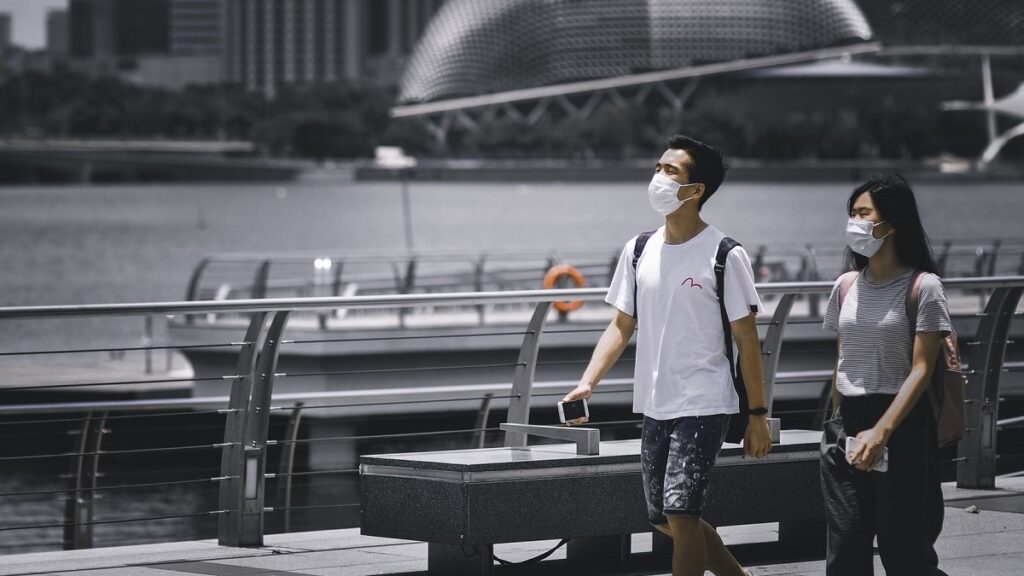We are waiting eagerly for travel to restart and, in the meantime, are complaining about it quite a lot. We’re as guilty as the next person, but in all honesty, beyond the inconvenience and lost holiday time – the economic impact on the travel ecosystem is humbling.
We had a chance to speak to James Shanahan from Revolut about the current situation in the business ecosystem around the travel industry. James joined Revolut in March 2020 as their Singapore CEO having held senior positions at Railsbank Technologies in Southeast Asia and Singlife. He brings with him more than 25 years experience with large banks, insurers and third parties, predominantly in Asia, including ANZ Bank, Avaloq, Standard Chartered Bank, AXA Insurance and Accenture.
With the pandemic in full swing around the world and only a few countries opening up again, we need to get expert insight into what we can expect. James was kind enough to share his insights into the industry and what we can expect in the long months to come.
READ MORE: We spoke to Cheryl Ng from Lemi about the SMEs around the travel industry
How has Revolut managed the pandemic and disruption within the travel industry?
It has been a long time since Revolut was a ‘travel-only’ product. We have multiple revenue streams. Of course, when Covid initially struck, our spending related revenue was hit but it led us to really tighten focus on costs and to focus on the everyday use of Revolut. We also continued with our expansion plans launching in the US, Australia, and Japan.

In July 2020, Revolut Singapore introduced Rewards – a cashback feature – to encourage online spend with merchant-partners such as Nike and Amazon. This gave our customers a way to use our product beyond its origins as a multi-currency travel card.
Globally, Revolut expanded on its offerings and enhanced our Cryptocurrency, Commodities, and Trading products.
What are some of the biggest trends you are seeing around travel-related spending?
Travellers may be more inclined to pay extra for tickets that allow them some degree of flexibility in terms of travel dates. I believe people will also be willing to pay extra for the option to get their ticket prices refunded in the event of another wave of restrictions.
People are likely to opt for destinations that are off the beaten track instead of popular ones that could get crowded. However, eventually travel will recover as people long to feel the freedom and excitement of journeying again.
We could also be looking at the possibility of “revenge spending” where people decide that they need to make up for the lost time and splurge on better accommodation, more frequent travel, more exotic experiences, and added extras to make trips more memorable.
Do you foresee a quick recovery for the travel industry in Singapore and the rest of Asia?
Recovery is likely to be spotty in the region and largely led by domestic travel in countries that have been free of domestic transmissions for a period of time. As vaccines become more widely available, we can expect quarantine-free travel corridors established in the region.

It’s unclear how long recovery will take. It really depends how soon populations receive the vaccines, how effective these are in preventing the spread and serious illness, and how soon countries can otherwise control the spread of Covid-19.
In the event of a continued slowdown in global travel, how do you think the travel and travel-dependent industries can survive?
Some of these businesses have successfully navigated the slowdown by redesigning their products and services to serve domestic consumers. For example, Hong Kong-based travel activities and services booking platform, Klook, entered into a domestic marketing partnership with the SingaporeTourism Board to help drive local tourism and raise the profile of various home-grown businesses around Singapore as part of the SingaporeRediscovers campaign. We have also seen many hotels have converted their lobbies and lounges into co-working spaces.
READ MORE: We discuss gin and going online with Holly Klintworth from Bass & Flinders distillery
What’s next for Revolut?
We will continue to expand into new markets. Some of the markets we are currently scoping are India, South Korea, and the Philippines.
For Revolut Singapore, we are working hard to bring our customers more products such as Trading, Cryptocurrency, and Commodities. We will also be launching Business accounts and Revolut Junior which enables customers to set up sub-accounts for their kids so they can use our app to teach their kids good money habits.

